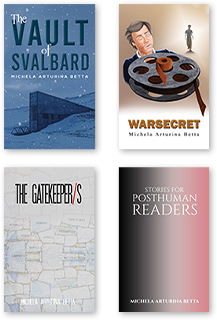
Freedom and accuracy in literature
In a moving piece in the New York Times (4 February 2019) Marie Myung-Ok Lee recently asked whether writers should be allowed to write whatever they want about autism. The author, who is herself a writer, is also the mother of an autistic child. Horrified by how some authors are representing autism – as “a gift, a curse, super intelligence, mental retardation, mystical, repellent, morally edifying, a parent’s worst nightmare” – she lamented the “literary transfigurations” (Susan Sontag) that are currently produced in novels that deal with autism.
Autism is indeed a physical and mental condition that is still puzzling the medical world. If doctors are not yet totally clear about the impacts of autism on individuals how can a writer know what such impacts might be?
Lee is friendly in her piece, letting transpire that she is experiencing a dilemma – as a writer she wishes to let authors know that she cares about their freedom; as a mother she wishes to let them know that she feels hurt, because, in the novels she has read, people who suffer from autism are practically deprived of any intelligible agency. Lee describes her own dilemma as “divided consciousness”. May she perhaps be too accommodating? She wonders why the way some authors use autism in their works “feels so wrong”. My answer is simple: if feels so because it is wrong.
Fiction is about the imaginary, that is people, places, and events that are not real, and yet, love for everyday truths must guide writers in their works as it (hopefully) does in their life.
Publishers and their agents have of course an obligation to check the stories they publish with great care, to avoid help propagating literary distortions that can be used in the real world to disadvantage real people.
Literary transfigurations and distortions cannot be mistaken for John Keats’ “negative capability”, an expression by which he meant the ability to create artistic beauty even when the story might create personal doubts, confusion, and uncertainty. When Keats coined that expression in 1817, he was not exhorting writers to be reckless; rather he wanted them to be honest with themselves and the protagonists of their stories. And indeed it is possible for writers to be accurate within the fictional world they create. Hence, I wonder whether writers who choose to overlook accuracy are not perhaps driven by a negative will?
That a writer can be imaginary and yet tell the truth about illnesses is shown in Alessandro Manzoni’s great historical novel The Betrothed (1827). In it Manzoni described the Black Plague of 1630 with accuracy, despite the uncertainties and doubts that such an event was causing to him as a writer, and to his fictional characters.
In the West, writers are certainly free to imagine their fictional world in whatever way they want, but are they free to use that freedom to limit other people’s freedom? Not only general decency forbids it, but also literary decorum.
Post Views : 429